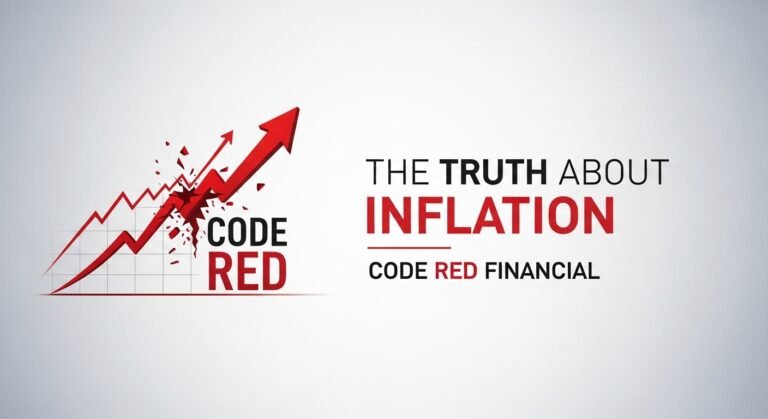Understanding Your New Financial Landscape
For a former stay-at-home wife and mother, navigating the financial aftermath of a divorce can be overwhelming. The first crucial step in rebuilding your financial life is to gain a thorough understanding of your new financial reality. Begin by gathering all necessary financial documents, including bank statements, tax returns, credit reports, and any information pertinent to the divorce settlement. This comprehensive collection will serve as the foundation for assessing your current financial standing.
Once you have all the necessary documents, take the time to scrutinize them carefully. Assess your assets, liabilities, income sources, and monthly expenses. Understanding your net worth and cash flow will provide clarity on where you stand financially. This step is vital in identifying any immediate financial concerns that need addressing and in crafting a realistic plan moving forward.
It is also essential to comprehend the legal implications of your divorce settlement. Whether it involves alimony, child support, or the division of marital assets, understanding these elements will help you forecast your future financial landscape. Consulting with a financial advisor or an attorney can provide valuable insight and ensure you are not overlooking critical details that could impact your financial stability.
Setting realistic financial goals is the next pivotal step. Start by establishing a budget that aligns with your current financial situation. Track your expenses meticulously to identify areas where you can cut costs. This practice will help in managing your cash flow and in maintaining financial discipline. Additionally, determine all potential income sources, such as employment, freelance work, or passive income, to support your financial goals.
Long-term financial planning is equally important. Define your financial aspirations, whether it is saving for your children’s education, purchasing a home, or building a retirement fund. Establishing clear, attainable goals will provide direction and motivation as you navigate this transition. By taking these initial steps, you can gain control over your finances and lay a solid foundation for your future financial well-being.
Building a Sustainable Income Stream
Transitioning from a stay-at-home role to becoming financially independent can be a daunting task. However, with strategic planning and dedication, it is entirely achievable. The first step involves assessing your skills and experience to identify employment opportunities that suit your background. For example, if you have experience in managing household budgets, you may find roles in administrative assistance or bookkeeping to be a good fit. Online platforms such as LinkedIn and Indeed offer a plethora of job listings where you can apply your existing skills.
Further education or vocational training can significantly enhance your employability. Many community colleges and online education platforms like Coursera and Udemy offer affordable courses that can help you gain new skills or certifications. Whether it’s a course in digital marketing, coding, or even a vocational program like cosmetology or culinary arts, investing in education can open new doors to sustainable income streams.
Leveraging your existing network is another crucial strategy. Reach out to friends, family, and former colleagues to inquire about job openings or freelance opportunities. Networking events, both online and in-person, can also provide valuable connections. Websites like Meetup and Eventbrite host numerous events that can help you expand your professional network and discover job opportunities.
Starting a small business or engaging in freelance work can also be a viable option. If you have a knack for crafts, consider platforms like Etsy to sell your products. Freelancing websites such as Upwork and Fiverr offer numerous opportunities for writing, graphic design, and virtual assistance, among others. While entrepreneurship and freelancing come with their own set of challenges, including irregular income and the need for self-discipline, they also offer the flexibility to work from home or manage your own schedule.
Ultimately, the goal is to become financially independent and self-sufficient. By exploring various employment opportunities, considering further education, leveraging your network, and perhaps starting a small business or freelancing, you can build a sustainable income stream that supports your new financial journey.
Securing Your Financial Future
Achieving long-term financial stability is a critical step in rebuilding your financial life post-divorce. One of the fundamental elements of financial security is establishing an emergency fund. An emergency fund serves as a financial cushion, providing a safety net for unexpected expenses such as medical emergencies or car repairs. Financial experts typically recommend saving three to six months’ worth of living expenses in a readily accessible account.
Investing wisely is another cornerstone of securing your financial future. Diversifying your investments can help mitigate risks and ensure a balanced portfolio. Consider consulting with a financial advisor to identify investment opportunities that align with your risk tolerance and long-term financial goals. Planning for retirement should also be a priority. Whether through employer-sponsored plans like a 401(k) or individual retirement accounts (IRAs), contributing consistently can significantly impact your financial stability in the future.
Financial literacy plays a vital role in managing your finances effectively. Understanding credit scores is crucial, as they affect your ability to secure loans, credit cards, and even housing. Regularly monitoring your credit report and maintaining a good credit score can open doors to better financial opportunities. Managing debt is equally important; prioritize paying off high-interest debt and avoid accumulating new debt whenever possible.
Seeking professional financial advice can provide personalized strategies tailored to your unique financial situation. Financial advisors can offer insights on budgeting, investment planning, and debt management, helping you make informed decisions.
Beyond the technical aspects, addressing the emotional facets of financial planning post-divorce is essential. Overcoming financial anxiety and building confidence in managing your finances can be challenging yet empowering. Remember that financial independence is not only about numbers but also about gaining control and confidence in your financial decisions.
Equipped with the knowledge and tools for effective financial management, you can navigate the path to a stable and prosperous financial future. Taking these proactive steps ensures not only your immediate financial security but also a solid foundation for long-term financial well-being.








